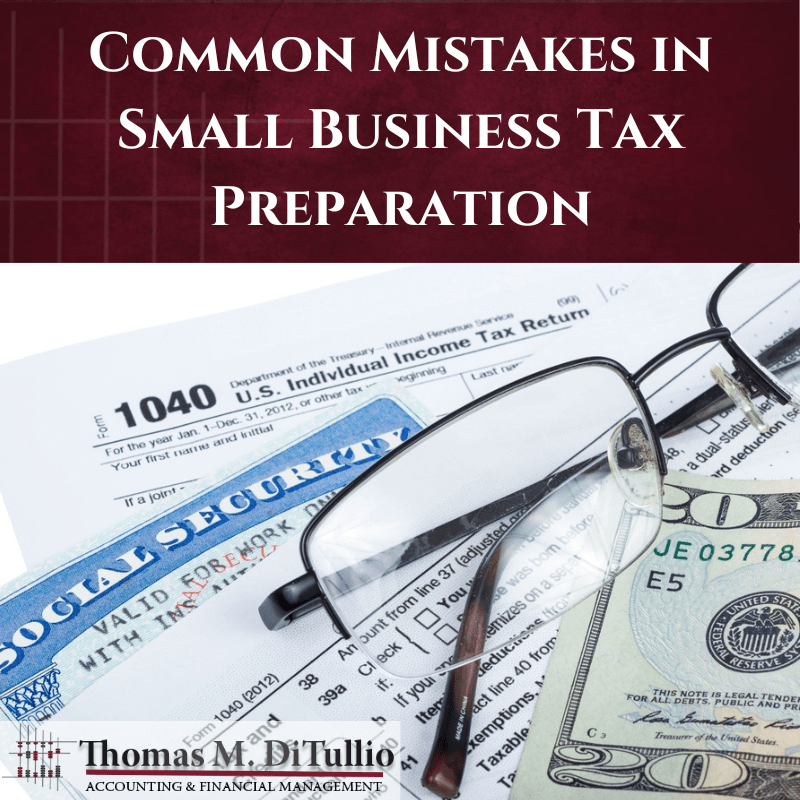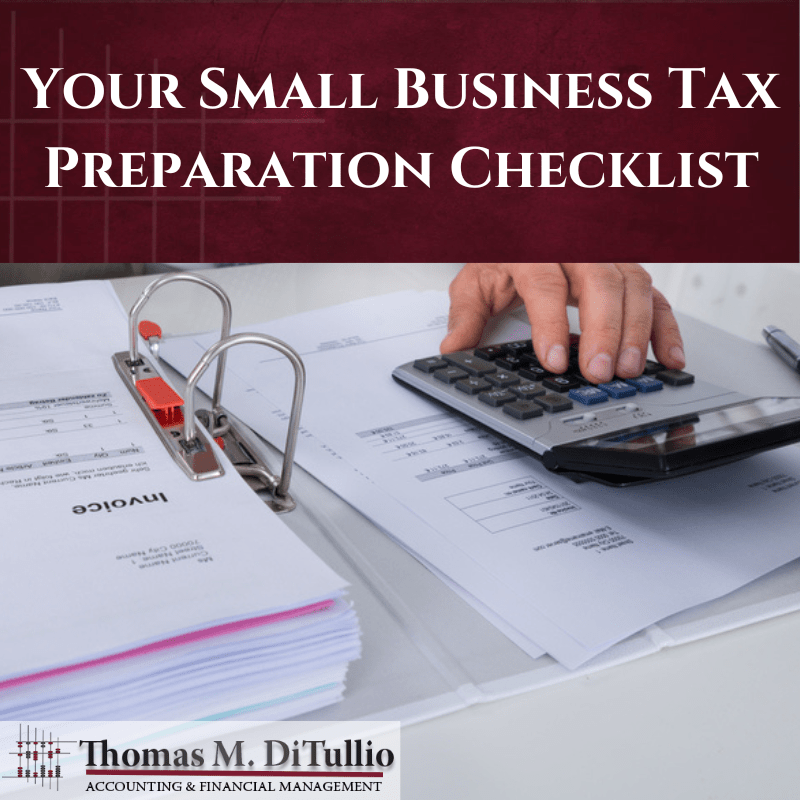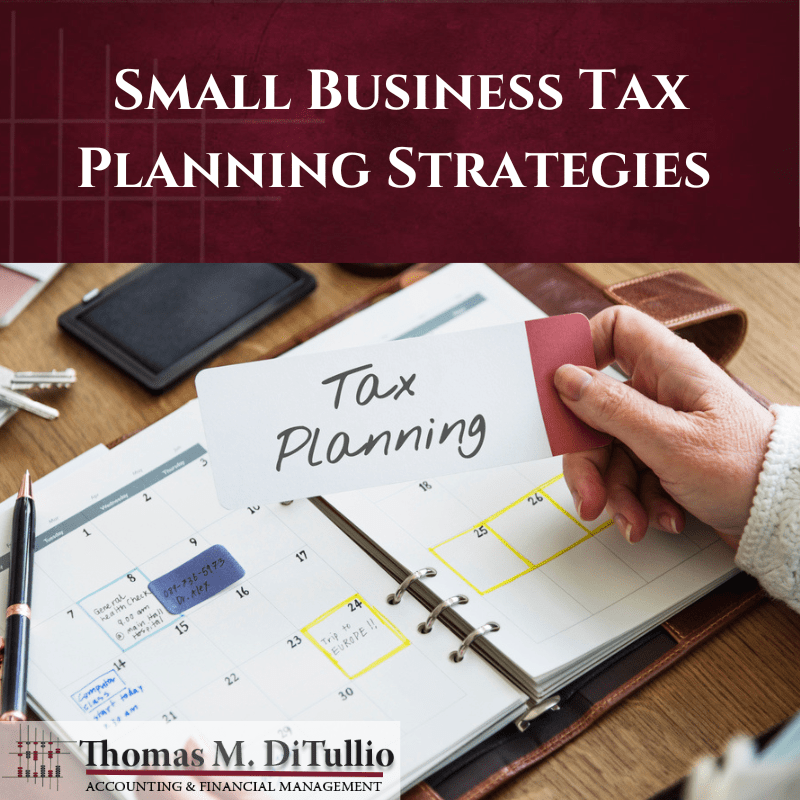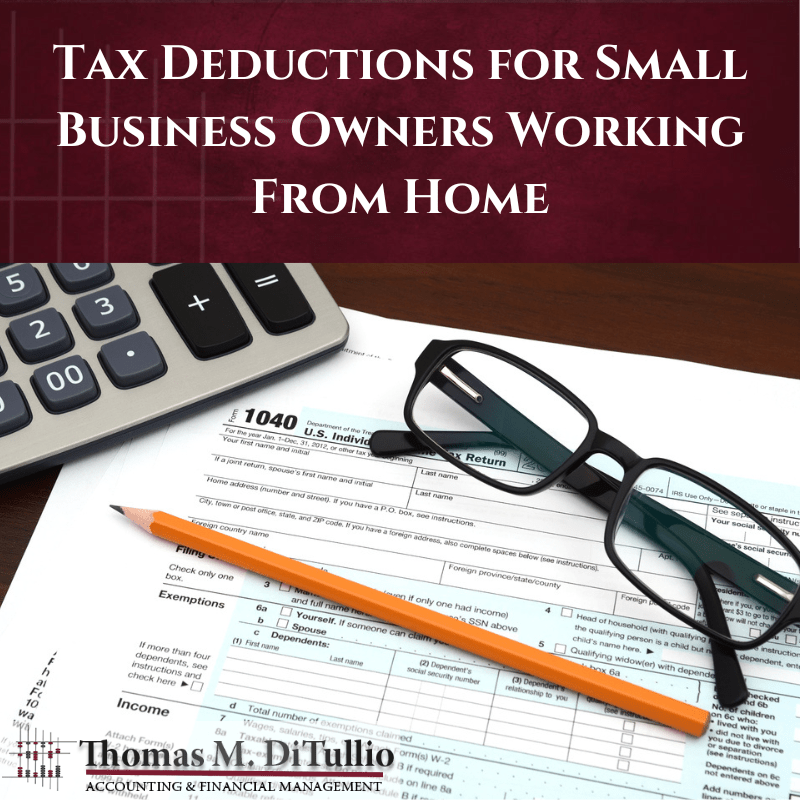Common Mistakes in Small Business Tax Preparation
Tax planning and preparation are major challenges for small business owners. While you might be an expert in your area of business, that doesn’t mean that you are also an expert in the intricacies of Internal Revenue Service (IRS) rules and tax laws. The U.S. Tax Code is highly complex, and there are many ways that small businesses can encounter problems with their taxes. Here are some of the most common mistakes made by small businesses and encountered by TMD Accounting that you should avoid.
1. Choosing the Wrong Business Entity Structure
There are several different types of legal entity structures that you can choose for your business. Each of these structures has advantages and disadvantages. When you choose the wrong one, your business structure can expose your company to potential liability and result in higher taxes. The following types of structures are the most common:
- Sole proprietorship
- Limited liability company (LLC)
- S-corporation
- C-corporation
- Partnership
- Limited liability partnership (LLP)
- Nonprofit
Some businesses choose the wrong tax entity while others fail to choose a structure at all. Either of these errors can greatly impact the future of your business. For example, while a sole proprietorship is the simplest structure for a business to form, it doesn’t provide any personal liability protection. Choosing a C-corporation structure for your company comes with many reporting and documentation requirements and can double the taxes you might owe. When you prepare to open your business, getting small business accounting services from TMD Accounting can help you select the most advantageous structure for your company.
2. Failing to File Taxes Or Send Proper Payments
When you need to file different types of taxes and send payments to the IRS will vary based on your business’s structure, your industry, and whether you have employees. There are many different forms that might be required, and you might also need to file different forms with the state as well.
Certain taxes must be filed every quarter, including payroll, estimated income, and sales taxes. Others must be filed annually, and you must also send your employees and contractors other forms directly so that they can file their tax returns.
Failing to file the right forms and submit payments on time can get your business in trouble. You might face high penalties from the IRS that could cripple your business. In certain cases, failing to file business tax returns or remit tax payments when they are owed could also expose your business to criminal liability.
3. Classifying Workers Improperly
Many businesses improperly classify their workers. For example, you might decide to classify your workers as independent contractors to try to save money on your tax bills. However, if you improperly classify workers, it could result in significant penalties. Make sure you understand the classification rules and follow them to avoid serious tax problems.
4. Underestimating Taxes or Underreporting Income
If you file your taxes as an S-corporation, partnership, or sole proprietorship, you will likely have to make quarterly estimated tax payments to the IRS. While you aren’t expected to guess how much your business will owe exactly, you are expected to be reasonably close. If you fail to make quarterly estimated tax payments or greatly underpay them, you could face a stiff penalty. If you understate the amount you owe by a substantial amount, the IRS might believe you were negligent and force you to pay a 20% penalty. If the IRS believes you tried to intentionally defraud the government, you could face a fine of up to 75% of the amount owed as well as criminal charges.
5. Commingling of Personal and Business Expenses
A major mistake that many small business owners make is mixing their personal and business funds and expenses. The IRS has strict rules against commingling personal and business funds. You can only deduct business expenses from your income and not personal expenses. To prevent you from deducting the wrong expenses, you must ensure your personal and business finances are kept separate. This means having a separate bank account for your business and only using a business credit card for business purchases and not your own. If you do use personal assets to operate your business, including your vehicle or a home office, you must keep detailed documentation to support your deductions.
6. Poor Organization and Record-Keeping
Failing to keep good records throughout the year can make tax time difficult. If you leave everything until the last minute, you’ll likely miss out on business deductions you would otherwise have been able to claim. Disorganized records and poor documentation can also result in higher small business accounting services fees when it’s time to prepare your business tax returns.
To prevent these problems, make sure you have a system to track your expenses and income on a continuing basis throughout the year. Each month, your cash flow, credit card statements, and bank account statements should be reconciled. You can use software to help manage your bookkeeping so that tax time will be smoother for both you and your accountant.
7. Taking Improper Deductions
The deductions you can claim for your business are those that are involved in the ordinary process of operating your company. You can review IRS Publication 535 to learn what is deductible. If you claim deductions for things that are improper, you could face an audit and potentially severe penalties. Even if you claim legitimate deductions, you could be penalized if they are out of sync with your business’s income or the deductions claimed by similar businesses in your industry.
If you report a loss for your business several years in a row, the IRS could decide that your venture is a hobby instead of a business. If that occurs, your ability to claim deductions could be disallowed completely.
Find an Accountant for My Small Business
The best way to avoid potential tax issues is to be honest and remain organized. Working with TMD Accounting can also help you avoid potential mistakes in preparing your taxes and claim all of the deductions to which your business should be entitled. To learn more, contact us today at 1-856-228-2205.











